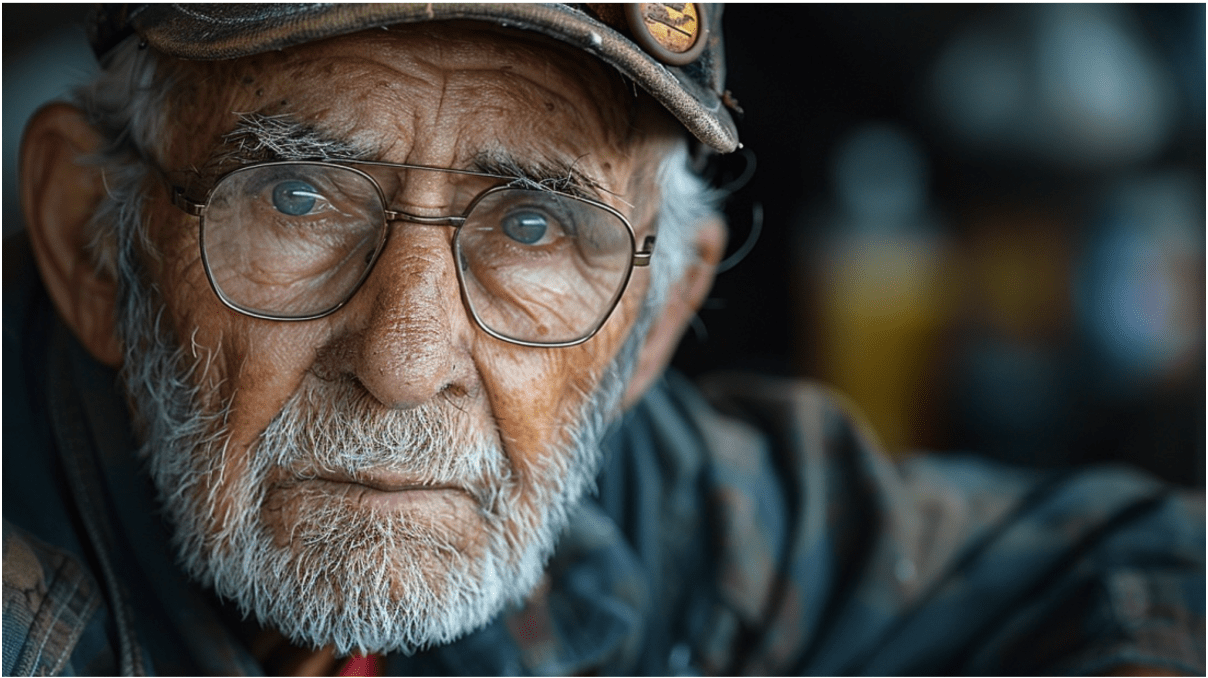US
Are All Florida Laws the Same, Or Do They Differ In Each County?

If you’re a state resident or on vacation, it’s important to know that Florida laws vary significantly from county to county. What’s legal in one area might not be in another. In this article, we’ll discuss the difference between state and county laws, why it’s important to know both, and what Pasco County attorney, Mike G Law, suggests you can do to stay up to date.
Three Levels of Laws in Florida
Florida abides by three different levels of law: federal, state, and county.
Federal laws are created by the United States Congress and apply to everyone in the country. Florida Legislature handles the state laws that apply to everyone in Florida. County laws are made by each county’s Board of County Commissioners and only apply to that specific county.
Wondering why this matters? Let’s say you get pulled over for speeding in Hillsborough County. The officer could ticket you based on the state law, which has a maximum fine of $500. However, if he decides to base it on the county law, you could face a $1,000 fine.
Know the Local Laws
You must be aware of both state and county laws because you could be breaking the law without even realizing it. Here are a few examples from Pasco County attorney, Mike G Law, showing how unique county-based laws can be.
Pasco County
Pasco County has a noise ordinance prohibiting car stereos from being played loudly between 11 P.M.-7 A.M. If you’re caught breaking this law, you could face a $30 fine for the first offense, $60 for the second, and $90 for the third.
Another Pasco County-specific law prohibits people from soliciting donations on medians or roadsides. It was put in place to protect both drivers and solicitors.
Hernando County
Hernando County has a few unique laws as well. For example, it’s against the law to have an inoperable or unregistered vehicle on your property. If your car is considered a junk vehicle, you could face a $50 fine.
It’s also against the law to shoot a gun in Hernando County unless you’re at a gun range or hunting. If you’re caught discharging a firearm in any other circumstance, you could face a $500 fine.
Pinellas County
If you sleep on the beach in Pinellas County, you could face a $200 fine. This law is in place to prevent people from camping overnight and leaving trash behind.
It’s also against the law to drink alcohol in most public parks. The only exception to this rule is Largo Central Park, where you can drink in designated areas with a permit.
Research Local Laws Before You Travel
If you’re planning on traveling to a different county in Florida, Pasco County attorney Mike G Law recommends doing some research beforehand. The best way to find out about specific laws is to contact the county clerk’s office or visit their website.
You can look up county ordinances online. Simply type in the county name followed by “counties Code of Ordinances.” For example, if you want to research Hernando County’s laws, type in “Hernando County Code of Ordinances.”
What to Do If You Break a Local Law
If you find yourself in a situation where you’ve broken a local law, the best thing you can do is hire an attorney familiar with that specific county’s regulations. They’ll be able to help you understand the charges against you and what options you have. Pasco County attorney, Mike G Law, believes it’s always best to have legal representation, even if you think the charges are minor.
If you’re facing a fine, your attorney may be able to negotiate with the prosecutor to have the charges dropped or reduced. In some cases, they may even be able to get the charges dismissed altogether. An experienced attorney will also be familiar with the county’s specific court process and know how to represent you best.
Final thoughts
Don’t face hefty fines or jail time because you’re unfamiliar with the local laws. Do your research before you travel and contact an attorney if you find yourself in legal trouble.
US
Creating Safe Havens: Inside Genesis USA’s Vision for Inclusive Housing

GenesisUSA, a nonprofit based in Arlington, Texas, works to improve the lives of disabled veterans and children who have lost their parents. Led by Charles Ford, the organization goes beyond providing financial aid. It focuses on long-term solutions, like building wheelchair-accessible homes, to support independence and dignity for those in need. With rising housing costs and growing inequality, GenesisUSA’s mission addresses a critical gap.
Ford and his team create supportive environments that help promote self-reliance in underserved communities. As a smaller, community-based organization, it addresses challenges that can be difficult for larger organizations to manage. Its work shows how local initiatives can make a noticeable difference.
A Growing Crisis: The Need for Accessible Housing
The demand for affordable and accessible housing continues to grow. A 2023 report from the National Low Income Housing Coalition estimated that more than 11 million U.S. households need homes with accessibility features. This challenge is more pronounced for disabled veterans, with nearly four million living in homes that do not meet their physical needs.
“Our veterans have sacrificed a lot for this country, but many still face housing that doesn’t suit their needs,” Ford says. “Beyond merely providing them shelter, we’re creating a space where they can live comfortably.”
GenesisUSA is responding by building homes designed for accessibility. These houses include ramps, wider doorways, and modified kitchens and bathrooms to allow veterans to live more independently. The organization also plans to create supportive environments for children who have lost their parents, many of whom also face mobility challenges.
Ford’s Community-Driven Leadership at GenesisUSA
Ford’s years of experience in construction and his dedication to charitable work have shaped his leadership at GenesisUSA. He stays closely involved, often meeting veterans and families to learn about their needs firsthand. “For me, it’s about building personal connections,” Ford says. “Large charities sometimes miss the individual stories.”
The community focus defines Ford’s leadership. Although some wonder if a smaller nonprofit can make a meaningful impact, Ford is confident. “We don’t have celebrity endorsements or huge budgets, but we have real relationships with the people we help,” he says. His dedication to grassroots efforts sets GenesisUSA apart from larger, more structured organizations.
GenesisUSA has already helped over 100 people and aims to expand its impact with affordable, accessible housing solutions. One notable feature is the inclusion of a wheelchair-accessible swimming pool, which has received positive feedback. Ford says, “We’re creating spaces where people can enjoy life fully, just like everyone else,” which reflects the organization’s mission to support independence and inclusion.
Building More Than Homes: A Reflection of Hope
Ford looks back on GenesisUSA’s progress with a clear sense of purpose. “We’re not simply building homes, we’re offering hope and building opportunities for independence,” he says. “We’re here to support veterans who face mobility challenges and children who have lost their parents, offering them a chance at a more self-reliant life.”
As the organization’s reach expands, so does its ability to impact lives across the country. Its work embodies Ford’s dedication to ensuring that no one is overlooked. Ford envisions scaling their efforts while maintaining the personalized approach that defines their model.
“We’re still in the early stages,” he notes. “As we grow, we’ll continue to prioritize individual needs. Our success hinges on the improved quality of life for each person we help.”
As the demand for accessible, supportive housing rises, organizations like GenesisUSA play an important role in filling gaps left by larger institutions and government programs. Through its focus on tailored support and community-driven solutions, GenesisUSA is building a model for how smaller nonprofits can significantly impact and address pressing social needs.
-

 Tech4 years ago
Tech4 years agoEffuel Reviews (2021) – Effuel ECO OBD2 Saves Fuel, and Reduce Gas Cost? Effuel Customer Reviews
-

 Tech6 years ago
Tech6 years agoBosch Power Tools India Launches ‘Cordless Matlab Bosch’ Campaign to Demonstrate the Power of Cordless
-

 Lifestyle6 years ago
Lifestyle6 years agoCatholic Cases App brings Church’s Moral Teachings to Androids and iPhones
-

 Lifestyle4 years ago
Lifestyle4 years agoEast Side Hype x Billionaire Boys Club. Hottest New Streetwear Releases in Utah.
-

 Tech6 years ago
Tech6 years agoCloud Buyers & Investors to Profit in the Future
-

 Lifestyle5 years ago
Lifestyle5 years agoThe Midas of Cosmetic Dermatology: Dr. Simon Ourian
-

 Health6 years ago
Health6 years agoCBDistillery Review: Is it a scam?
-

 Entertainment6 years ago
Entertainment6 years agoAvengers Endgame now Available on 123Movies for Download & Streaming for Free
